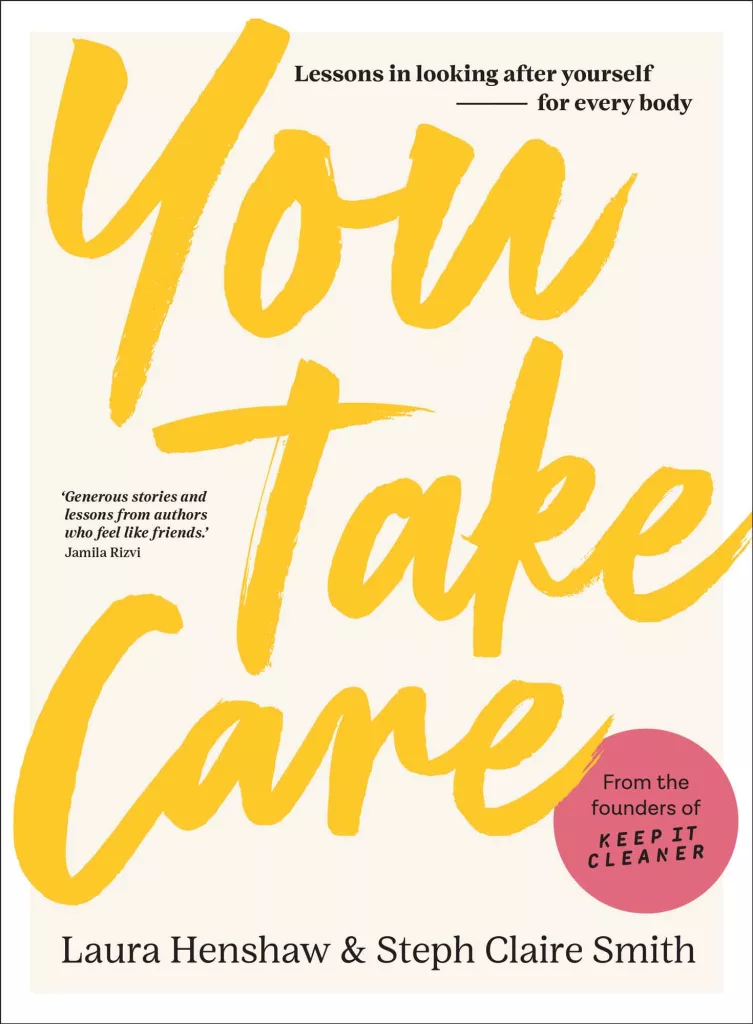While wonderfully exciting, pregnancy can also be a time when we experience a lot of anxiety.
By Laura Henshaw and Steph Claire Smith
Overnight, we are responsible for the health of a baby, too, and it can suddenly feel as though there are hundreds of rules and guidelines about what we should and shouldn’t eat and drink, how much we should exercise, what we should wear, when we should travel.
Things that didn’t require a second thought before, now require careful consideration. It’s a lot! And if that mother-to-be isn’t in an ideal situation – perhaps financially or romantically – then life can be even more complicated.
Another area of fear and anxiety for so many women can be related to a prior miscarriage or stillbirth. A pregnancy following that type of trauma and loss presents a lot of emotional challenges, and that can be a hard path to navigate.
“IT MIGHT BE EASIER SAID THAN DONE, BUT HOLD ON TO THOSE FEELINGS OF NAUSEA, THE TENDERNESS OF YOUR BOOBS, AND THE EXHAUSTION BECAUSE THESE ARE ALL POSITIVE SIGNS THAT YOUR PREGNANCY IS PROGRESSING AS PLANNED.”

Sadly, around one in four pregnancies ends in miscarriage or pregnancy loss. We asked Dr Bronwyn to write a blog for our KIC website to help our community better understand what a miscarriage actually is and she defines miscarriage as any pregnancy that is lost before 20 weeks’ gestation. The majority of miscarriages occur before the ten-week mark. A pregnancy loss after 20 weeks of gestation is considered a stillbirth. Devastatingly this happens to around six babies a day here in Australia.
If you think about it, it’s a miracle that an egg and a sperm can find each other, become one cell and then divide again and again to make a healthy baby. Occasionally, things go wrong along the way for myriad reasons. Maybe the individual egg or sperm hasn’t developed properly. Perhaps something goes wrong when the cells divide or when the embryo tries to attach to the lining of the uterus.
When things don’t go well for whatever reason, the result is that the pregnancy fails.
The female body is designed to ensure that only healthy pregnancies progress. This is why embryos that aren’t healthy stop growing and miscarriage occurs. Your body is incredibly clever to recognise that things aren’t quite right, but that doesn’t take away the pain and heartbreak of losing a baby.

Managing anxiety during pregnancy
Anxiety during the first trimester is extremely common and normal, even if you haven’t experienced a miscarriage. We spoke to Dr Bronwyn about how to manage anxiety during early pregnancy.
Avoid Google/the internet
There is so much misinformation out there that is going to lead you to believe that something is wrong even if things are fine.
Focus on your pregnancy symptoms
Tiredness, fatigue, nausea, shortness of breath, and many more symptoms are all reassuring signs that your pregnancy is progressing.
Talk it out
Tell your partner or a friend who has been by your side during your pregnancy about your concerns so they can reassure you.
Work with a health professional
They can reassure you when you are not sure how things are going. You can always book in for extra scans if you are worried things aren’t going well.
Focus on the positive statistics
Even though one in every four pregnancies ends in miscarriage, the majority of pregnancies progress normally. Once past the 13-week scan, 99 per cent of pregnancies will go on to be fine.
Take reassurance in each major milestone
Get through the first few weeks with some blood work to confirm that your pregnancy hormone (BHCG) is rising. Then there’s the dating scan to see the heartbeat at six or seven weeks. At ten weeks, there’s the non-invasive prenatal test (NIPT) for chromosome number and to screen for chromosomal abnormalities. The first early anatomy scan happens at 12 or 13 weeks. And once you get through 24 weeks, you have a viable baby on board.
Find a release
Try exercise or mindfulness.
Seek professional help
See a perinatal psychologist if things are getting too hard to manage by yourself.

Pregnancy after loss
By Nicole Maycroft, head of PR and Comms at Keep It Cleaner
Pregnancy after loss is a wild experience that’s not often spoken about. The moment I saw those positive lines on the pregnancy test, I was flooded with mixed emotions. On one hand, I was insanely excited that my husband and I were one step closer to holding our baby in our arms, but on the flip side, I was shit-scared that our dream could, and would, be taken away from us again.
If you’ve experienced pregnancy after loss, you may relate to the feeling of being ‘robbed’ of the blissful excitement that comes with early pregnancy, you’re nervous about going to the bathroom as you’re terrified of seeing blood, you over-analyse every cramp and ache in your body, or you put up a barrier to protect yourself ‘just in case’. I’ve been there. Whatever you’re feeling, know that this is completely normal. You’ve gone through a traumatising, heartbreaking experience, and it’s only natural to feel these concerns.
It might be easier said than done, but hold on to those feelings of nausea, the tenderness of your boobs, and the exhaustion because these are all positive signs that your pregnancy is progressing as planned.
Hold on to the fact that the majority of people who experience a miscarriage will go on to have a healthy pregnancy. Just because you’ve lost one doesn’t mean you will lose another. Hang in there, sunshine. It will all be worth it when you’re holding your rainbow baby in your arms. Sending you so much love, strength and positive fertility vibes.
You’ve overcome many obstacles in your life. You’re much stronger than you know.
SUPPORT RESOURCES:
COPE
Gidget Foundation
PANDA
Beyond Blue

Text from You Take Care by Laura Henshaw and Steph Claire Smith. Murdoch Books RRP $36.99.
Sign up to our newsletter for weekly mama goodness delivered straight to your inbox, like the VIP that you are.





